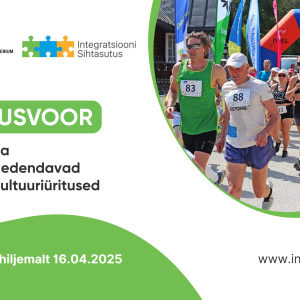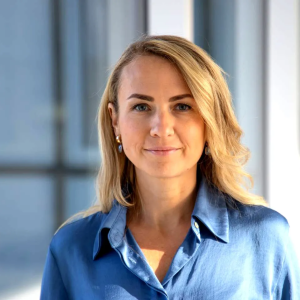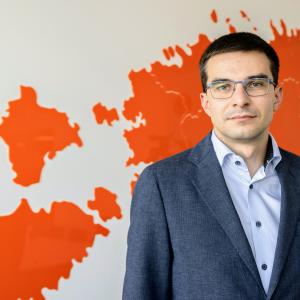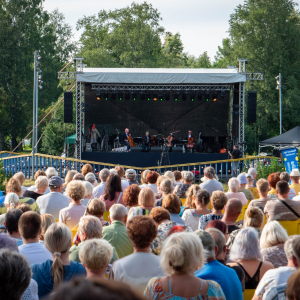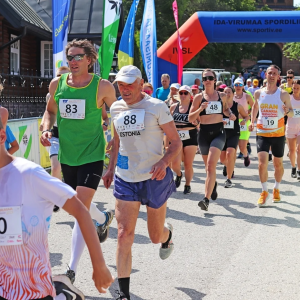Until 16 April, legal entities as well as local governments and their organisations can apply for support for organising sporting and cultural events in Ida-Viru County that promote entrepreneurship. The grants, totalling 400,000 euros, will be allocated by the Integration Foundation in cooperation with the Ministry of Regional Affairs and Agriculture.
Support is available for sporting and cultural events that take place in Ida-Viru County between 17 March 2025 and 16 March 2026, are of at least regional significance, and involve more than 1,000 people. These can be both first-time and repeated events.
Many memorable events have been supported in the region over the past six years, according to Sigrid Soomlais, Deputy Secretary General for Regional Development of the Ministry of Regional Affairs and Agriculture. ‘Over the years, thousands of people, both locals and visitors, have taken part in these events. All these events have also played an important role in stimulating the economy of the region – attendees consume local services and sell local products. Taken as a whole, this support contributes to the development of sport and culture as an economic sector in Ida-Viru County,’ comments Soomlais.
The boosting of entrepreneurship in Ida-Viru County and the development of sporting and cultural events in the region are part of the Ida-Viru County programme, which is being implemented by the Integration Foundation in the framework of the national regional policy programme in cooperation with the Ministry of Regional Affairs and Agriculture since 2019.
According to Dmitri Moskovtsev, Director of the Integration Foundation, sporting and cultural events have a multifaceted impact. ‘The support will contribute to the revitalisation of local life in Ida-Viru County and thus to the development of both the region and Estonia as a whole. It will strengthen the county’s links with other regions and boost cooperation between people and communities. Major events provide self-fulfilment opportunities for locals and encourage entrepreneurship. The popularity of these events will help to make the county a more attractive destination for tourists and investors alike. This will create ever better opportunities for operating in Ida-Viru County,’ he adds.
Grants ranging from 10,000 to 30,000 euros can be applied for by legal entities as well as local governments and the bodies under them. The budget of the Ministry of Regional Affairs and Agriculture has earmarked a total of 400,000 euros for grants.
Applications must be submitted via the grant processing information system of the Ministry of Culture by 11.59 p.m. on 16 April 2025 at the latest. For more information on how to participate in the call for applications, please visit the website of the Integration Foundation https://integratsioon.ee/en/competitions-estonian. Further information will also be available at the information day taking place on Teams on 3 April. To participate in the information day, please register by sending an email to iris.jarv@integratsioon.ee.
Last year, 17 organisations received state support totalling 401,488 euros. The supported events can be found at https://www.integratsioon.ee/taotlusvoor-ida-virumaa-ettevotlust-edendavad-spordi-ja-kultuuriuritused-4.

